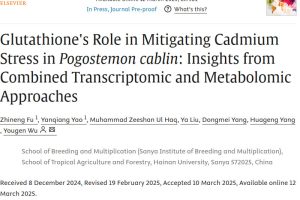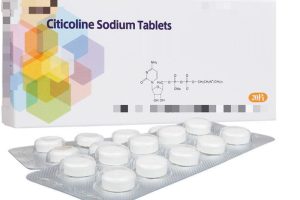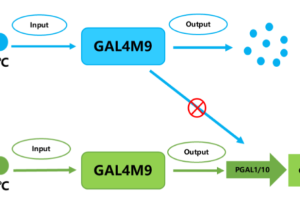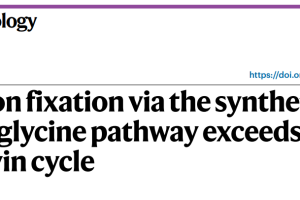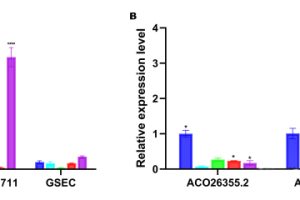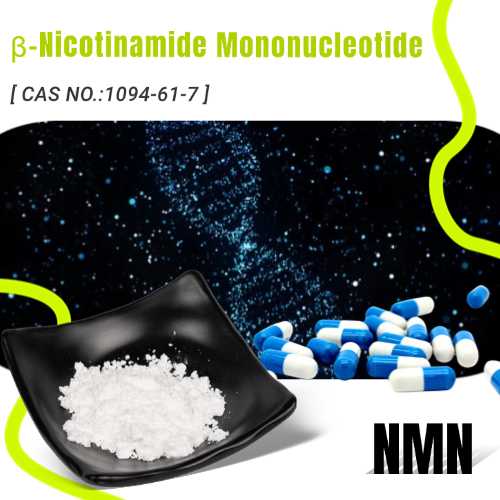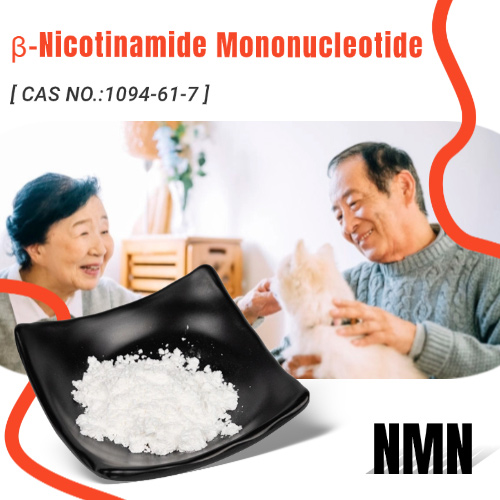The purity of NMN is stable at 99.9%, and the products are sold well in Europe, America, East Asia, and Japan. GSH bio uses synthetic biology to explore the mystery of anti-aging
In 1946, the first World Health Assembly designated October 13 as “World Health Day” and advocated that countries around the world hold various commemorative activities to remind people of the importance of health.
This year’s theme is “Stay Healthy, Start now”.
How to live longer, healthier and happier lives has become a critical issue for the health of all.
At the same time, it coincides with the traditional Chinese concept of “prolonging life”.
In the field of biology, many authoritative studies have revealed different genes and mechanisms that influence longevity.
Here are some of the key findings:
- Environmental factors such as diet, stress, temperature and social interaction also have a significant impact on longevity;
- Overexpression of specific genes such as SIRT6 can significantly extend lifespan, suggesting that genes play an important role in regulating the aging process.
- Signaling pathways such as insulin-like growth factor-1 (IGF-1) and AMP-activated protein kinase (AMPK) play a key role in regulating mitochondrial function and lifespan.
Thus, the relationship between longevity and mitochondria is a complex and important area of research. The optimization of mitochondrial function is considered to be one of the important ways to prolong life.
In 2023, a study published by the Buck Institute of Aging in the United States on the relationship between mitochondria and aging caused a huge response in the scientific research community.

In this clinical study, the researchers were surprised to find that the mitochondrial size of the aging experimental nematodes was significantly reduced, and after activating the key gene signal of mitochondrial fission, the nematodes mitochondria were improved, showing a 40 percent longer life span, and the survival rate of the experimental group 3 was 300 percent compared to the normal group.

The Russian Academy of Sciences, in collaboration with the Cancer Institute, University of London, UK, has released an in-depth statistical study that reveals the link between mitochondria and human lifespan.

The study, which began in 2003, included 9,360 people who were divided into 10 groups based on their mitochondrial levels and followed for 15 years.
The results showed that participants in the group with the lowest mitochondrial count were 2.35 times more likely to die than those in the group with the highest mitochondrial count.
Specifically, those with low mitochondrial counts faced a 92 percent increased risk of death from cardiovascular disease and a 266 percent increased risk of death from cancer.

Mitochondrial supplement NMN: promotes NAD+, improves mitochondrial health, and delays aging
Mitochondria, as the “energy factory” in human cells, play an important role in maintaining life activities and promoting longevity.
In order to enhance the function of mitochondria, many methods have been explored, among which NMN (β-nicotinamide mononucleotide) supplementation has attracted much attention.
NMN is a direct precursor to NAD+ (nicotinamide adenine dinucleotide), a key coenzyme that is indispensable in mitochondrial metabolism.
By supplementing NMN, the level of NAD+ in cells can be effectively increased, and a series of NAD+ dependent enzymes can be activated, especially longevity proteins such as Sirt3.
These enzymes help restore the normal function of mitochondrial proteins by removing acetylation modifications on them, thereby improving mitochondrial work efficiency, optimizing energy production, and potentially slowing the process of age-related decline.
Taking Japan, the world’s first longevity country, as an example, in March 2020, Japan revised the “List of Ingredients (Raw materials) that are not judged as pharmaceuticals as long as the functional effects of drugs are not advertised”, so that NMN can be officially approved as food raw materials in Japan, thus expanding the scope of application of NMN in the food field in Japan.
On August 16, 2024, the Japanese Consumer Agency approved for the first time NMN with triple functionality as a “functional” food raw material, officially included in the category of functional food.
On July 27, 2024, the Japanese financial publication “Weekly Toyo Economy” published an article titled “Mania for anti-aging substance NMN”, which introduced that the market size of NMN in Japan has reached tens of billions of yen and continues to grow.
NMN purity is stable at 99.9% and will continue to power the global market
In the early stages of large-scale production of NMN, chemical synthesis used to be the mainstream way, especially before 2010, this method uses adenosine monophosphate (AMP), tetraacetyl ribose, NAM and other raw materials to synthesize NMN through complex chemical reactions.
Chemical synthesis is faced with problems such as low yield and environmental pollution, which prompts researchers to look at biosynthesis in order to find a new way to increase the yield of NMN.
Anhui GSH Bio-Technology Co.,LTD. (hereinafter referred to as “GSH Bio”) is one of the enterprises that have made remarkable achievements in this field.
Since its establishment in August 2017, GSH Bio has focused on the research, development and production of synthetic biotechnology, with a wide range of product lines covering nutrition and health raw materials, medical beauty raw materials, glutathione series of coenzymes and pharmaceutical intermediates.
With strong research and development strength, GSH Bio was recognized as a high-tech enterprise in 2018 and has accumulated more than 80 invention patents.
GSH Bio has independently developed a series of practical genome manipulation tools and screening technologies, including CMR microbial genome multiple knockout technology, library construction technology based on Seamless Fusion, and HES high-throughput enzyme screening technology.
Through independent research and development of genetic manipulation technology and rich experience in industrialization, the company realizes rapid product landing and rapid process iteration.
At present, the company has completed three iterations of NMN and NAD process updates, and has become the first manufacturer in the world with stable purity of NMN at 99.9%.
The founder and General Manager of GSH Bio once pointed out, “As a vitamin derivative and human endogenous product, NMN is involved in many human energy metabolism processes, and the market potential is huge.”
Successful category selection is only part of the success, and sustained earnings and market share also rely on key factors such as “deep cultivation of nucleotide series, technological first-mover advantage, continuous technological innovation and iteration, and adherence to long-term quality awareness.”
In terms of technology, GSH Bio adopts cutting-edge enzymatic production process to improve the purity of products, and the purity of products has been sticking to more than 99.9% for a long time. Through fine process control and strict quality management system, the company continues to efficiently provide customers with safe, efficient and pure NMN products, and has won wide recognition and trust in the market.
GSH Bio has also joined forces with the National Engineering Laboratory of Grain Fermentation Technology and Technology of Jiangnan University to take a solid step in industrial-scale manufacturing on the basis of completing the construction of a research and development system for microbial metabolic pathways, targeted engineering bacteria construction, and efficient microbial transformation.
In terms of market, GSH Bio has made efforts in both domestic and international markets. Taking glutathione and NMN as an example, since the start of overseas trade in 2021, the company’s export market share from China to India has continued to grow, increasing from 40% in 2022 to 50% by the end of 2023. NMN, GSH, NAD and other products have continued to promote overseas sales in North America, Eurasia, Japan and South Korea.
Literature source:
- [1]https://accessapps.amdi.usm.my/reqba_uploads/ebook/Handbook of the Biology of Aging 8th edition.pdf
- [2] https://zhuanlan.zhihu.com/p/377623539
- [3] http://swxxx.alljournals.cn/html/2019/4/20190401.html
- [4] https://www.nature.com/
- [5] https://www.researchgate.net/
- [6] https://news.foodmate.net/


